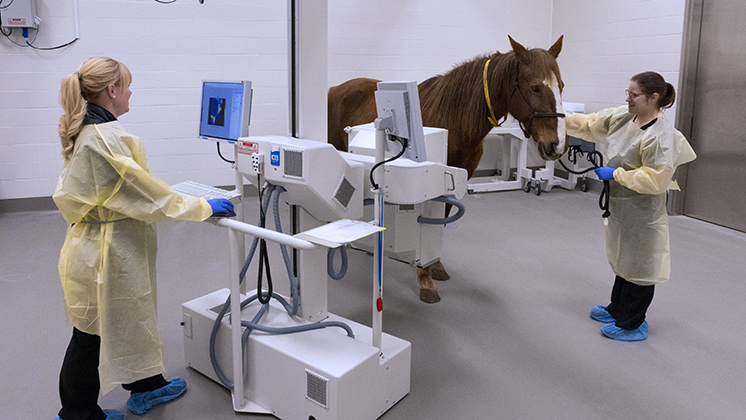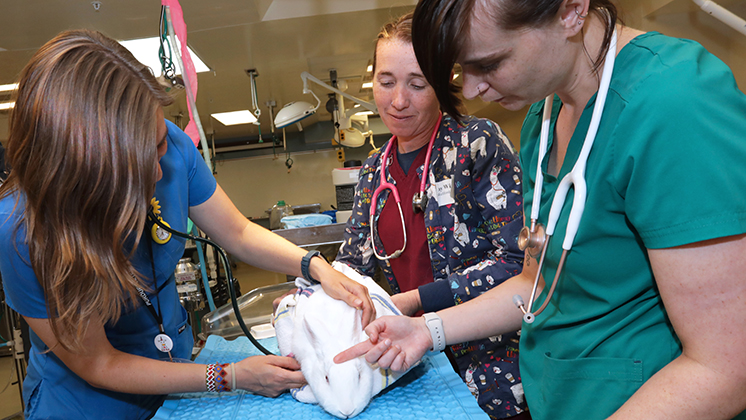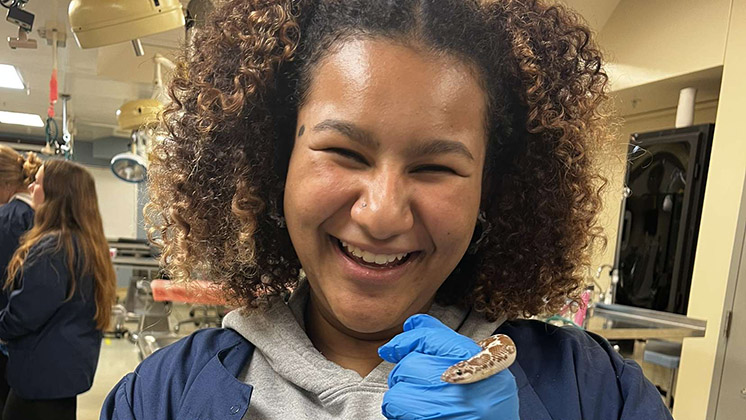What Are the Pros and Cons of In-Person Vet Tech School?

by Kelsey Wirt, MS, LVT and Josh L. Clark, MS, RVT
Aspiring veterinary technicians have the option of completing their education through traditional, in-person AVMA accredited programs. While this pathway provides many benefits, it also comes with some potential drawbacks. Here are some pros and cons to consider.
Pros of In-Person Vet Tech Programs
- Hands-On Learning: One of the most significant advantages of in-person programs is the opportunity for hands-on learning. You have opportunities to learn hands-on skills that are guided by instructors (who are credentialed vet techs) in controlled laboratory sessions. Whereas in online vet tech programs, much of the hands-on skills are learned at an off-campus location that is typically a veterinary practice. While this works for some students, others may not be able to learn skills as effectively in a busy veterinary practice.
- Immediate Feedback: In-person learning allows for real-time interaction with instructors and classmates. You can ask questions and receive immediate answers and feedback, which can enhance understanding and retention.
- Networking Opportunities: Attending school in-person provides ample opportunities to form relationships with your professors and fellow students, which can lead to valuable professional and personal connections. In-person education allows for more social interactions on a regular basis that can help you build a community with your peers.
- Structured Learning Environment: Traditional in-person programs offer a structured learning environment with set class times, which can help you stay focused and organized. Online programs often require you to complete more work independently, whereas in-person programs already have those resources established for you.
Cons of In-Person Vet Tech Programs
- Less Flexibility: In-person programs typically require a more rigid time commitment and may not be as flexible as online programs. You have little control regarding when on-campus classes are scheduled. This can be challenging for students who work, have family responsibilities, or live far from the school.
- Additional Costs: Attending school in person may involve additional costs, such as commuting or relocating to live near the school. In addition, full-time students in an on-campus program usually have limited time outside of class to work, which can make it difficult to earn money while in school.
- Pace of Learning: In traditional classrooms, the pace of learning is set to accommodate the entire class, which may not suit your learning style or speed.
- Limited Program Choices: Depending on your location, there may be a limited number of AVMA accredited programs available near you, restricting your choice of vet tech programs to attend in person. On-campus programs also have limited space and resources, which can limit the number of students who are accepted into the program. This could be a potential challenge for students applying to on-campus programs.
When considering online vs. traditional vet tech programs, it's essential to evaluate your learning style, career goals, and personal circumstances. Be sure to choose an AVMA accredited program, whether online or in-person, to ensure that you are eligible to become credentialed when you graduate.
Learn more about Purdue’s On-Campus Veterinary Technology Program
Start Your Veterinary Technician Journey
Find your calling as a Purdue Veterinary Technician!
Not quite ready to apply? Connect with us to learn more.
Suggested Articles

How Do I Get a Raise as a Vet Tech?
Discover actionable steps for veterinary technicians to boost their earning potential. From pursuing specialization to effective negotiation, learn how to highlight your value in the veterinary field and advocate for a salary that matches your skills and contributions.
Read more
What is the Difference Between a Vet Tech and a Vet Assistant?
Delve into the distinct roles of veterinary technicians and veterinary assistants in animal healthcare. Highlighting differences in education, job duties, scope of practice, and compensation, this guide offers a clear comparison to help aspiring professionals choose their best-fit career path in veterinary medicine.
Read more
Can You Live Off Being a Vet Tech/Nurse?
Discover whether a veterinary technician salary can support a comfortable lifestyle by exploring factors like geographical location, specialization, and personal financial obligations.
Read more
